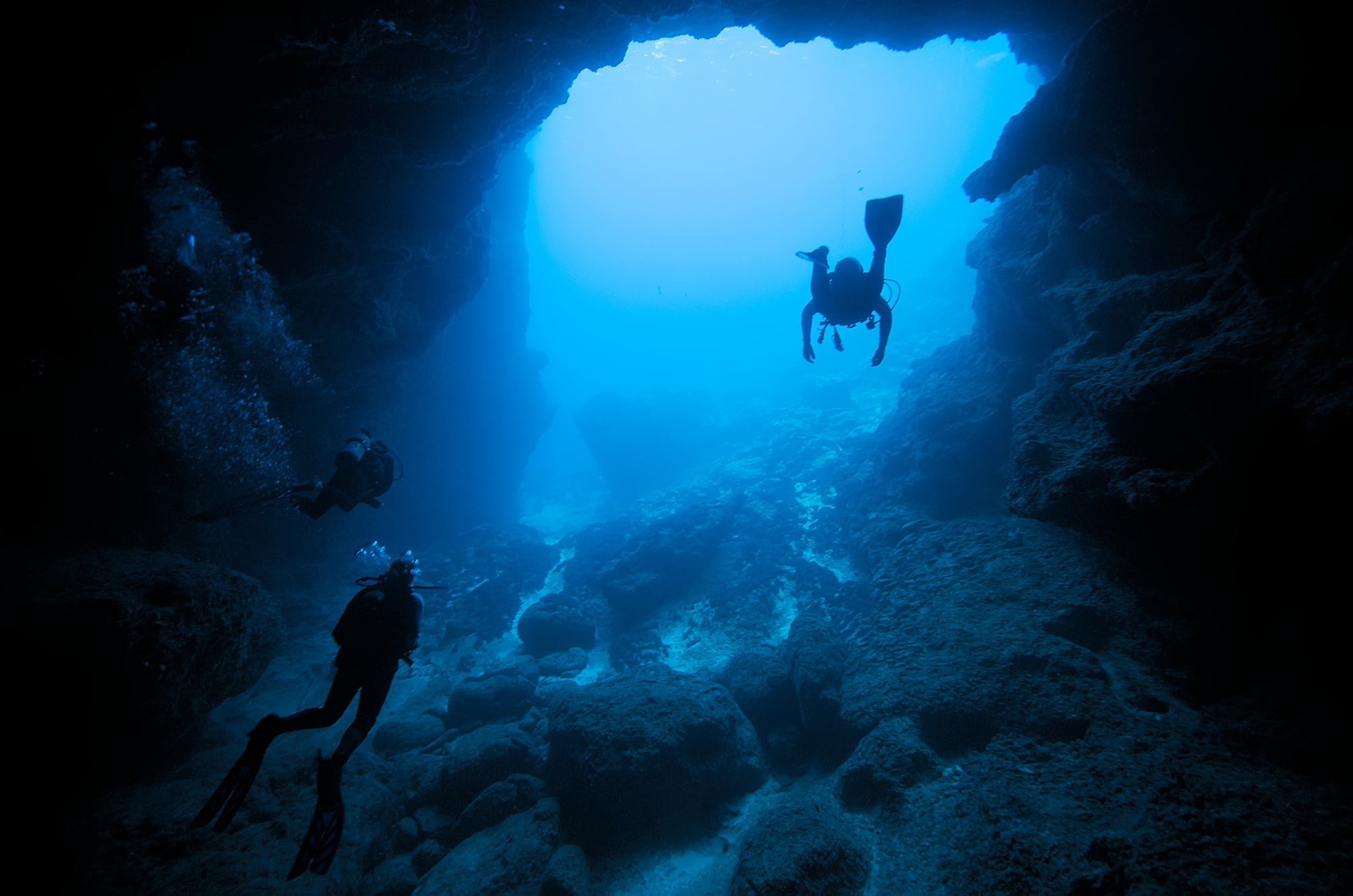Stop the Drops!
Ear and sinus injuries are the most common complaints among student and newer divers.
Frequently divers surface complaining of a sensation of fullness in their ear(s). They will often describe it as feeling as though there is still "water in the ears," stuffiness or congestion. Occasionally they will also complain of pain. The individuals that complain of pain need to be managed differently than those complaining of fullness or similar symptoms.
The Beaten Drum
Actual pain, as opposed to pressure or fullness, may indicate a more serious injury. What are the most common causes of ear pain associated with diving? The obvious suspect is a perforated (ruptured) ear drum. Incomplete equalization causes increased pressure on the ear drum most commonly during descent (middle ear squeeze), but may occur with ascent (reverse block). If not properly addressed through effective equalization, the increased pressure can perforate the ear drum. Bleeding into the external ear canal may or may not be visible. The perforation leaves the middle ear vulnerable to infection and further irritation. Severe middle ear barotrauma can also occur without a perforated eardrum and be just as painful. Many divers believe that complaints of pain can be treated with any common ear drops, but this is not the case.
Here are the reasons why: Any of the drops that are available over-the-counter or mixed at home are intended to prevent "swimmers ear" (infection of the ear canal or otitis externa). The emphasis is on prevention. Once an injury has taken place, these drops do not have any therapeutic value. Almost all drops, regardless of their source, contain some amount of alcohol. In the case of a truly perforated ear drum, the solution will enter through the perforation into the middle ear. Remember that at this point the middle ear is very irritated and sensitive. Alcohol will at least temporarily increase the pain for the individual. Think of it the same way as applying alcohol to an open wound on the skin. Anyone who has ever experienced that should remember how painful it can be. Introducing cold fluids into the middle ear or the ear canal can cause vertigo, nausea and even vomiting until the fluid is warmed. Even in the absence of a perforation, the alcohol can still cause pain due to the severe irritation of the ear drum. Further injury from the drops is unlikely, but they are of no help in this particular instance and can cause unnecessary pain.
In rare cases a diver may have a buildup of ear wax (impacted cerumen) that acts like an ear plug. This creates an air space between the cerumen and the ear drum that cannot be equalized. On descent, the cerumen may be forced farther into the ear canal, causing pain. Again, drops used to prevent otitis externa are of little or no value in this situation.
Feeling Full
What about the divers who do not complain of pain but the sensation of water or fullness in the ear(s)? Would drops be appropriate in the absence of pain? When there is inefficient equalization the increased hydrostatic pressure causes the ear drums to bow inward. This creates a vacuum effect. Due to the laws of physics, vacuums are not particularly sustainable; fluid and blood begin to fill the space. At the same time, the Eustachian tubes begin to collapse. This makes subsequent efforts to equalize even more difficult, if not impossible. The fluid/blood is effectively trapped in the middle ear, causing the sensation of "water in the ear" or fullness. The fluid is not in the external ear canal. In these cases where there is a feeling of fullness or "water in the ears" without pain, swimmers ear drops may not induce pain but they are still of no value because the problem is not in the external ear but in the middle ear. An intact ear drum will prevent the drops from reaching the middle ear. The drops may or may not increase discomfort but, again, there is no reason to suspect that they would help relieve the symptoms. It is extremely important that a diver who complains of any of the symptoms mentioned be discouraged from further attempts to equalize as this can risk greater injury. Obviously, diving should be discontinued.
Any diver who experiences ear symptoms after diving, especially pain, should be evaluated by a doctor. The need for evaluation is even greater for any diver who complains of hearing loss and/or ringing in the ears (tinnitus). Prompt treatment of a perforated ear drum can prevent further irritation and infection. In cases where there is no perforation, a doctor can manage pain, promote healing and rule out a severe injury. Above all, please remember that most ear drops are used to prevent otitis externa and are not intended to treat any injury.
Learn more about your ears and how to take care of them while diving with DAN's online seminar, "Ears and Diving"
Learn more
Cleaning the outer ear for divers, by Alfonso Bolognini, AlertDiver.eu, 2008; 3: pp.11,12

